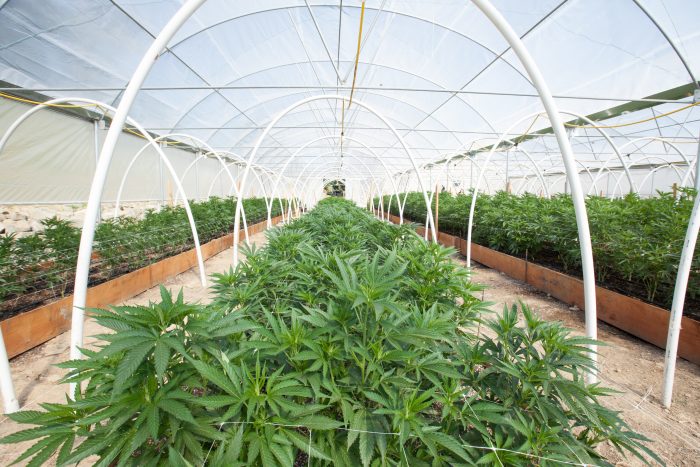Effective March 31, 2021, New York legalized the use of marijuana for recreational purposes under the Marijuana Regulation and Tax Act. Recreational marijuana is also commonly referred to as “adult use” cannabis to distinguish it from medical marijuana, which New York legalized under the Compassionate Care Act in 2014.
The Office of Cannabis Management (OCM) is responsible for regulating the adult use cannabis market, as well as the existing medical marijuana and hemp programs. The OCM is overseen by a five-member Cannabis Control Board.
Below you will find information regarding licensing procedures for dispensaries, cultivators, processors, and registered organizations. We keep this page up-to-date when new information becomes available. Please note that this page is for informational purposes only and should not be considered legal advice.
Definition
Dispensaries sell recreational cannabis and cannabis products in a legal, regulated setting.
Requirements
Any person 21 years and older who does not work in law enforcement can apply for a license to dispense adult use cannabis in New York. No person can own more than three dispensary licenses, and dispensary license holders cannot own or have any interest in cultivators, processors, distributors, microbusinesses, or cooperatives.
Process
Applicants must first complete and submit their Adult Use Dispensary Application to the Cannabis Control Board (“the Board”) in writing. Depending on the prospective business’ structure, all license applications must be signed by the applicants, managing members, officers, or partners. There is a nonrefundable application fee, along with a biennial license fee.
A separate license is required for each physical address where a business intends to operate. The Board may request that each person, member, principal, and/or officer of the applicant submit their fingerprints for a criminal history search. These fingerprints may be sent to the Federal Bureau of Investigation for a national criminal history check. Applicants must pay any processing fees associated with the criminal history search.
If the applicant wishes to propose changes after their application is filed, a statement describing and giving notice of the change must be submitted to the Board at least 30 days before said change. Failure to do so will result in denial of the application.
The Board will either approve or deny an application within 60 days of its submission. If the Board denies an application, it will notify the applicant in writing of the specific reason(s) for denial. This decision is subject to review by the Supreme Court.
A license will only be granted if the applicant either owns or leases the premises where the business will operate before final license approval. The applicant must have proof, in writing, that they control the premises for no less than the license period, which is two years.
Once the Board approves an application, it will issue a license. A license must be renewed two years after the date of issue. The Board will provide a renewal application no less than 90 day before the license expiration date; a license is officially renewed upon submission of the application and payment of the biennial license fee.
Conditional Adult-Use Retail Dispensary (CAURD) Licenses
According to the New York City Website, the Conditional Adult-Use Retail Dispensary (CAURD) License is the first retail dispensary license to be distributed for legal adult-use cannabis sales in New York State. As of August 2022, they will be awarded to businesses owned by justice-involved New Yorkers and close family members, setting a foundation for an equitable industry.
Applying for a CAURD License?
Applications for OCM’s CAURD license will be open for a period of at least 30 days starting August 25, via New York State’s application portal.
The NYC Department of Small Business Services (SBS) will support CAURD license applicants with services that include:
- Eligibility checklist
- Hotline to answer questions
- Application help
To qualify for a CAURD license, your business must meet OCM’s eligibility requirements and submit a competitive application. Not all applicants will be approved.
To see if you qualify for the CAURD application and get help with your application, call the SBS hotline: 1-888-SBS-4NYC (888-727-4692), or the OCM hotline: 1-888-OCM-5151 (1-888-626- 5151).
What kind of software do I need to operate a Dispensary?
Most states require dispensaries to track and trace all of their cannabis-related products for regulatory and compliance reporting requirements. Our Dispensary Point of Sale and inventory management system provides comprehensive seed-to-sale cannabis tracking with a focus on compliant data points. If your state requires seed-to-sale systems to stay compliant, BioTrack has you covered. Our system is customized to meet the unique regulatory frameworks in each and every state.
Definition
Cultivators, also commonly referred to as growers or producers, are responsible for growing cannabis. Once harvested, mature plants are transferred to processors. In New York, there are adult use cultivators and adult use nurseries.
An adult use cultivator license authorizes the acquisition, possession, distribution, cultivation, and sale of cannabis to a licensed processor.
An adult use nursery produces only clones, immature plants, seeds, and other agricultural products used specifically for the planting, propagation, and cultivation of cannabis by cultivators, microbusinesses, cooperatives, and registered organizations.
Requirements
Any person 21 years and older who does not work in law enforcement can apply for a license to cultivate adult use cannabis in New York.
No person can own more than one cultivator license. Cultivators cannot own or have any interest in adult use dispensaries or registered organizations, but can hold one processor license and one distributor license solely for the distribution of its own products.
A cultivator can also apply for and obtain one nursery license to sell directly to other cultivators, cooperatives, microbusinesses, and registered organizations.
Process
Applicants must first complete and submit their Adult Use Cultivator Application or Adult Use Nursery Application to the Cannabis Control Board (“the Board”) in writing. Depending on the prospective business’ structure, all license applications must be signed by the applicants, managing members, officers, or partners. There is a nonrefundable application fee, along with a biennial license fee. A separate license is required for each physical address where a business intends to operate.
The Board may request that each person, member, principal, and/or officer of the applicant submit their fingerprints for a criminal history search. These fingerprints may be sent to the Federal Bureau of Investigation for a national criminal history check. Applicants must pay any processing fees associated with the criminal history search.
If the applicant wishes to propose changes after their application is filed, a statement describing and giving notice of the change must be submitted to the Board at least 30 days before said change. Failure to do so will result in denial of the application.
The Board will either approve or deny an application within 60 days of its submission. If the Board denies an application, it will notify the applicant in writing of the specific reason(s) for denial. This decision is subject to review by the Supreme Court.
A license will only be granted if the applicant either owns or leases the premises where the business will operate before final license approval. The applicant must have proof, in writing, that they control the premises for no less than the license period, which is two years.
Once the Board approves an application, it will issue a license. A license must be renewed two years after the date of issue. The Board will provide a renewal application no less than 90 days before the license expiration date; a license is officially renewed upon submission of the application and payment of the biennial license fee.
What kind of software do I need to operate a Cultivation Facility?
Most states require dispensaries to track and trace all of their cannabis-related products for regulatory and compliance reporting requirements. Our cannabis cultivation and inventory management system provides comprehensive seed-to-sale cannabis tracking with a focus on compliant data points. If your state requires seed-to-sale systems to stay compliant, BioTrack has you covered. Our system is customized to meet the unique regulatory frameworks in each and every state.
Definition
Also known as manufacturers, processors take harvested cannabis from producers and create derivative extracts for edibles, concentrates, topicals, and prepacks. Once finished, their products are transported to dispensaries.
In New York, an adult use processor license authorizes the acquisition, possession, processing, and sale of cannabis to a licensed distributor.
Requirements
Any person 21 years and older who does not work in law enforcement can apply for a license to process adult use cannabis in New York.
No person can own more than one processor license. A processor can also obtain a distributor license solely for the distribution of its own products. Processors cannot own or have any interest in adult use dispensaries or registered organizations.
Process
Applicants must first complete and submit their Adult Use Processor Application to the Cannabis Control Board (“the Board”) in writing. Depending on the prospective business’ structure, all license applications must be signed by the applicants, managing members, officers, or partners. There is a nonrefundable application fee, along with a biennial license fee. A separate license is required for each physical address where a business intends to operate.
The Board may request that each person, member, principal, and/or officer of the applicant submit their fingerprints for a criminal history search. These fingerprints may be sent to the Federal Bureau of Investigation for a national criminal history check. Applicants must pay any processing fees associated with the criminal history search.
If the applicant wishes to propose changes after their application is filed, a statement describing and giving notice of the change must be submitted to the Board at least 30 days before said change. Failure to do so will result in denial of the application.
The Board will either approve or deny an application within 60 days of its submission. If the Board denies an application, it will notify the applicant in writing of the specific reason(s) for denial. This decision is subject to review by the Supreme Court.
A license will only be granted if the applicant either owns or leases the premises where the business will operate before final license approval. The applicant must have proof, in writing, that they control the premises for no less than the license period, which is two years.
Once the Board approves an application, it will issue a license. A license must be renewed two years after the date of issue. The Board will provide a renewal application no less than 90 days before the license expiration date; a license is officially renewed upon submission of the application and payment of the biennial license fee.
What kind of software do I need to operate a Processing Facility?
Most states require dispensaries to track and trace all of their cannabis-related products for regulatory and compliance reporting requirements. Our cannabis processing management system provides comprehensive seed-to-sale cannabis tracking with a focus on compliant data points. If your state requires seed-to-sale systems to stay compliant, BioTrack has you covered. Our system is customized to meet the unique regulatory frameworks in each and every state.
Definition
In New York, registered organizations are for-profit businesses or not-for-profit corporations that acquire, possess, manufacture, sell, deliver, transport, distribute, and/or dispense medical cannabis. A registered organization has the same privileges and conditions as adult use cultivators, processors, distributors, and dispensaries.
The Board may allow an existing medical cannabis business to convert no more than three of its existing storefronts to dual-use (recreational and medical) businesses if it pays a one-time “special licensing fee.” Registered organizations cannot have an interest in or own any other adult use license.
Requirements
Any person 21 years and older who does not work in law enforcement can apply to run a registered organization in New York.
A registered organization that manufactures medical cannabis can have up to four dispensing facilities. Medical cannabis products must be manufactured in an indoor, enclosed, and secure facility located in New York state.
Process
Applicants must first complete and submit their Registered Organization Application to the Cannabis Control Board (“the Board”) in writing. Depending on the prospective business’ structure, all license applications must be signed by the applicants, managing members, officers, or partners. Each such person must also submit an affidavit detailing their position, ownership interest, and overall history in the cannabis industry. There is a nonrefundable
application fee, along with a biennial license fee.
The Board may request that each person, member, principal, and/or officer of the applicant submit their fingerprints for a criminal history search. These fingerprints may be sent to the Federal Bureau of Investigation for a national criminal history check. Applicants must pay any processing fees associated with the criminal history search.
If the Board does not have sufficient information to issue a registration, it will notify the applicant in writing and detail the evidence required. After receiving this notification, the applicant has 30 days to choose to submit additional material, demand a hearing, or do both.
Once the Board approves an application, it will issue a registration. A registration must be renewed two years after the date of issue. A registration renewal application must be submitted to the Board no more than six months and no less than four months prior to expiration. The Board may treat a late-filed renewal application as an initial registration application.
What kind of software do I need to operate a Registered Organization?
Most states require dispensaries to track and trace all of their cannabis-related products for regulatory and compliance reporting requirements. Our cannabis POS and inventory management system provides comprehensive seed-to-sale cannabis tracking with a focus on compliant data points. If your state requires seed-to-sale systems to stay compliant, BioTrack has you covered. Our system is customized to meet the unique regulatory frameworks in each and every state.
Microbusinesses
Microbusinesses cultivate, process, distribute, deliver, and/or dispense their own adult use cannabis and cannabis products in a limited fashion. Microbusinesses cannot hold any direct or indirect interest in any other license, and can only distribute their own cannabis and cannabis products to adult use dispensaries.
Cooperatives
A cooperative license authorizes the acquisition, possession, cultivation, processing, and sale of adult use cannabis to duly licensed cannabis businesses—not directly to consumers. A cooperative license must be organized under cooperative principals and controlled democratically by the members themselves. No person can own more than one cooperative license. Cooperatives cannot own or have any interest in adult use dispensaries.
Consumption Sites
An on-site consumption license authorizes the acquisition, possession, and sale of adult use cannabis to consumers for use at an on-site location. No person can own more than three on-site consumption licenses. Consumption sites cannot own or have any interest in any other adult use businesses.
Distributors
Distributors sell cannabis products wholesale. A distributor license authorizes the acquisition, possession, distribution, and sale of cannabis from a processor, cooperative, microbusiness, or registered organization to duly licensed dispensaries, consumption sites, and delivery services. A person cannot own more than one distributor license. Distributors cannot own or have any interest in adult use dispensaries, microbusinesses, or consumption sites. Any distributor with a direct or indirect interest in a licensed cultivator or processor can only distribute cannabis and cannabis products cultivated and/or processed by such license holders.
What kind of software do I need to operate these other business types?
Most states require dispensaries to track and trace all of their cannabis-related products for regulatory and compliance reporting requirements. Our cannabis POS and inventory management system provides comprehensive seed-to-sale cannabis tracking with a focus on compliant data points. If your state requires seed-to-sale systems to stay compliant, BioTrack has you covered. Our system is customized to meet the unique regulatory frameworks in each and every state.
Before receiving medical cannabis, patients must register with the New York Department of Health.
Current Estimated Patient Counts: 18,348 (updated 5/5/2017)
How can I obtain a New York Medical Marijuana Card?
Patients should first ask their treating physician if s/he is registered with the Department of Health’s Medical Marijuana Program. If your physician is not registered and does not plan to participate in the program, s/he can make a referral by accessing a database (called the Health Commerce System) that identifies a list of registered physicians who have consented to be listed, and their specialties. You may direct your physician to more information on registering with the program here.
Registration Facts
- Patients must first have a certification from their physician, who must be registered with the Department
- Certified patients will submit their application for registration using the Department’s online system that is accessed through NY.gov. Patients who do not have a NY.gov account will need to visit https://my.ny.gov/ and click the “Don’t have an Account?” button to create a personal NY.gov ID first. Patients with a NY.gov account will login to https://my.ny.gov/, click the “Health Applications” icon, and then click the “Medical Marijuana Data Management System” link to register
- There is a $50 application fee pursuant to Public Health Law. This fee will be billed to you at a laterdate, unless you obtain a waiver for financial hardship
- Patients will be required to provide proof of their identity and residency during the application process
- Patients may designate up to two caregivers during the registration process. After the patient’s application is approved, the designated caregiver(s) must then register with the Department
- Patient registration expires when the certification that was issued by the practitioner expires
- The registry ID card will be mailed to the certified patient after the application is approved
- Patients must have the registry ID card and their certification in order to purchase approved medical marijuana products, as recommended by their certifying physician, from a registered organization’s dispensing facility
- Patients must always carry their registry ID card whenever they possess approved medical marijuana products
- No one may transport medical marijuana products outside of New York State
- New York State does not accept certifications or registry ID cards from other states
- A certified patient or designated caregiver who has been issued a registry ID card shall notify the Medical Marijuana Program of any change in his or her name, address, or if he or she no longer has the serious condition noted on the card within ten (10) business days of such change
Does my condition qualify for Medical Cannabis in New York?
- Cancer
- HIV infection or AIDS
- Amyotrophic lateral sclerosis (ALS)
- Parkinson’s disease
- Multiple sclerosis
- Spinal cord injury with spasticity
- Epilepsy
- Inflammatory bowel disease
- Neuropathy
- Huntington’s disease
- Cachexia or wasting syndrome
- Severe or chronic pain
- Severe nausea
- Seizures
- Severe or persistent muscle spasms
Medical Cannabis Registration Fees for Patients
- $50 application fee (can be waived due to financial hardship)
Can a minor apply for a New York Medical Cannabis Card?
If the applicant for a registry identification card is under the age of eighteen (18) or a person who is otherwise incapable of consenting to medical treatment, the application must be submitted by an appropriate person over twenty-one (21) years of age. The applicant must designate at least one, and up to two, caregivers who must be among the following: (i) a parent or legal guardian of the certified patient; (ii) a person designated by a parent or legal guardian; or (iii) an appropriate person approved by the Department upon a sufficient showing that no parent or legal guardian is available or appropriate.
Patient FAQ








